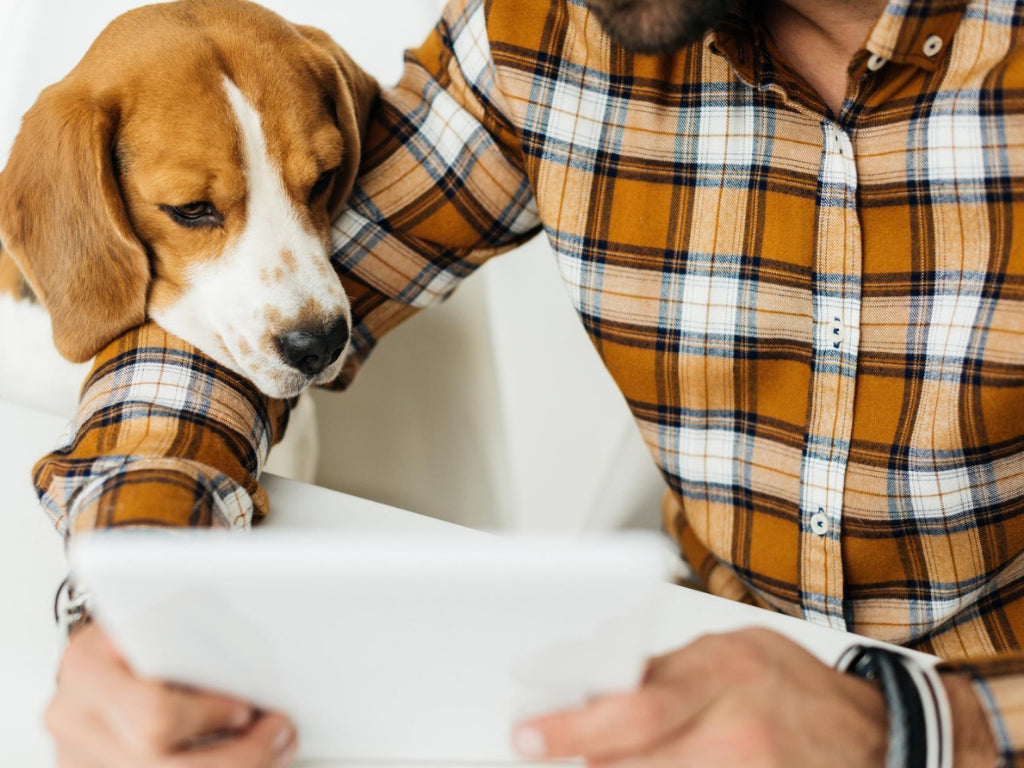Dog diarrhea can have various causes, and it's important to determine the underlying reason to provide appropriate treatment and care for your dog. Common reasons for dog diarrhea include: dietary indiscretion, infections, parasites, stress. Also, some medications can cause diarrhea in dogs as a side effect.
When we speak about dietary issues, it can be sudden changes in pet’s diet (sometimes caused by other medical treatments), or occasional consuming spoiled food (eating garbage), but also food allergies your lovely dog.
Often common reasons for dog diarrhea are infections: bacterial infections (ingesting harmful bacteria, such as Salmonella or E. coli) resulting in bacteria overgrowth in the dog’s intestines. Sometimes, it goes about viral infections in dogs (canine distemper virus or parvovirus). Also, intestinal parasites like worms (e.g., roundworms, hookworms, tapeworms) or protozoa (e.g., giardia, coccidia), also contribution in dog’s dietary issues
Finally, stress and anxiety can lead to gastrointestinal upset of your pet, but also some medications can cause diarrhea in dogs as a side effect.
Regarding the dog diarrhea treatment we can give several practical hints. First of all, in case when your lovely dog is suffering diarrhea, there are some important things to avoid.
NOT TO DO: Avoid feeding your dog fatty, spicy, or hard-to-digest foods. Also, refrain from giving your dog treats or table scraps.
Next, there are several steps you can take to help alleviate dog diarrhea.
TO DO:
- Temporarily withhold food for 12-24 hours to give your dog's digestive system a rest. Provide plenty of fresh water to prevent dehydration of your pet. Ensure your dog has access to clean, fresh water at all times to prevent dehydration, especially if the dog diarrhea is frequent.
- Consider giving your dog professional anti-diarrhea treatment like GastroBalance Diarrhea Relief for dogs This dog diarrhea product is based on highly-absorbent mineral Montmorillonite (see out article about this powerful mineral) which provides an efficient dog medication for diarrhea and firms-up stools with immediate results. There are two canine-specific products for small dogs (< 10 kg) and for large dogs (< 10 kg). Both of them remove toxins and other unwanted wastes that the dogs with diarrhea may have to eliminate the cause of dog’s stomach upsets and restore normal digestive system balance.

After the fasting period, feed your dog a bland diet for a few days. This can include plain, cooked white rice and boiled chicken (with no bones or skin) in small, frequent meals. When the dog diarrhea subsides, gradually reintroduce your dog's regular diet over a few days to avoid upsetting their stomach again. For additional successful recovery, we advise to add a probiotic supplement to your dog food allowing restore the balance of gut bacteria. To read more about probiotics for dogs in this article
Keep a close eye on your dog's condition. If the diarrhea in dog continues for more than 24 hours or if your dog displays other concerning symptoms (e.g., blood in the stool, lethargy, vomiting), consult with your veterinarian for a proper diagnosis and treatment plan.





